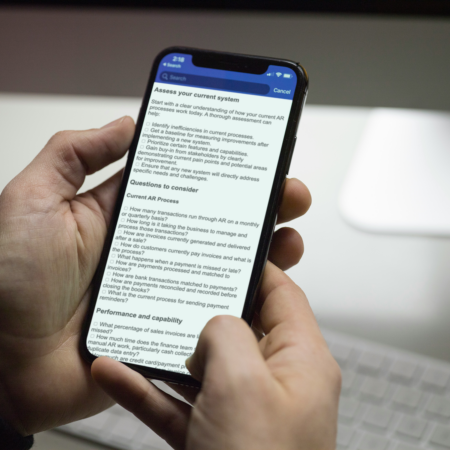
QuickBooks cloud accounting is accessible and useful for some, but it lacks important features that become important for managing accounting in a remote setting.

Why is Cloud-Based Accounting so Valuable?
It’s simple. Cloud-based technology is essential for today’s business world. This is particularly true with accounting and related business applications. In the midst of a crisis, these tools let you remain in control of your business finances, conserve resources, and continue working. This also makes work convenient, easier to manage, and faster! Cloud-based accounting also helps you have more accurate data and use it more effectively.
Conversely, just because the app in question can work remotely, and popular, doesn’t mean it’s fully optimized for remote coordination. Remote access is useless if your system isn’t equipped to help your team fully understand the data. Internal control, process creation, and collaboration features are key for sustainable work. However, many applications, including QuickBooks, lack some of the more intuitive qualities that optimize the remote experience.
Want a more resilient, versatile cloud accounting app to really thrive remotely? Don’t look to QuickBooks. Let’s look at why.
QuickBooks Cloud Accounting Limitations
QuickBooks, in its traditional form, was designed for desktop or the local machine use. It wasn’t designed for remote use until later. However, cloud-based hosting of QuickBooks Desktop does allow access from any device, any time. But, there are some limitations.
QuickBooks Online was designed to replicate most of the features of QuickBooks, but certain cloud features are not similar to the desktop version. If you’re looking to transition from the desktop version to QuickBooks cloud accounting, this might be tricky and frustrating.
Apart from the variation in features, another challenge that most users face with QuickBooks Online, is their slower processing. For accounting professionals with a long task-list, working on QuickBooks Online isn’t a recommended solution, especially for firms that need multi-user compatibility. The same goes for businesses with unique accounting requirements and processes. Besides the differences in versions though, QuickBooks cloud accounting lacks several features focused on visibility and collaboration that makes remote more efficient.
Essential Remote Cloud Accounting Features
There are core technology features you should really consider for the best cloud experience. QuickBooks has many basic accounting functions and is cloud accessible, but there are several qualities missing that limit the scope of the product. This makes QuickBooks Cloud Accounting difficult to scale and use to coordinate your team. Here are some essential features.
IT Flexibility
Besides basic accounting features, a viable cloud-based solution should be flexible. The problem of having to adapt to a system is an issue, particularly for those working remotely. Team members will struggle to stay on the same page or use the technology in unison. Being unable to have the accounting processes and analytics align with what your business needs is a huge inconvenience which can also jeopardize overall company operations. Your cloud accounting solution should allow for customizations and configurations to satisfy your unique needs.
Internal Control and Collaboration Features
If you have a team or work with multiple stakeholders, being able to deftly secure your data while allowing them to visualize and work together smoothly is important. QuickBooks cloud accounting has basic features like notes, but these features don’t let you articulate processes. Internal processes and control keeps you focused and maintains timely, accurate accounting.
You’ll want a cloud accounting system with tools dedicated that let you communicate, share and update data, secure information, and manage operations within the system. These are not accounting functions. These are features that optimize how you work within the accounting tool, giving you full control over the accounting data and process. Whether working remotely or in the office, these tools help give you a 360-degree view and control of your finances.
Automation
Cloud accounting excels when you remove confusion and tedious data reentries to just focus on fast accounting processes. The fastest way to eliminate labor pains from working in QuickBooks is to look for accounting software that provides high-level automation features. Automation gives your colleagues the opportunity to spend more time analyzing data instead of entering data. This, in turn, will allow your company to make smarter, quicker, and more accurate decisions.
Master Cloud Accounting with Accounting Seed
Accounting Seed is a great alternative to QuickBooks because it lets you view, control, and work with your data however you need, wherever you are. Besides real-time data insights, our system emphasizes flexibility and automation, enabling you to use our tools and features however you need.
See Accounting Seed in action
Get a close-up view of how accounting on Salesforce can eliminate the need for costly integrations—and silos of mismatched information—by sharing the same database as your CRM.


